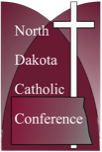Human Dignity is Universal
by Christopher Dodson
Executive Director
North Dakota Catholic Conference
September 2017
Stephen Bannon, the former strategist for President Donald Trump, expressed strong opposition to the U.S. Catholic bishops' position on Deferred Action for Childhood Arrivals (DACA) program. Disagreement with the Catholic bishops by itself might not have been noteworthy. The reasons for his position, however, drew swift reaction from the office of the U.S. Conference of Catholic Bishops and illustrate a fundamental misunderstanding about Catholic social doctrine.
Bannon, who made the comments during an interview taped for 60 Minutes, stated that when it came to DACA and other immigration issues the bishops were not expressing doctrine and that their motivation was only to fill pews with “illegal aliens.” Cardinal Timothy Dolan, whom Bannon specifically mentioned, called the statements “preposterous” and “insulting.” A spokesperson for the USCCB reacted with similar words and added that “welcoming immigrants is indispensable to our faith” and that to “suggest otherwise is absurd.” The USCCB statement explained that the “witness of the Catholic bishops on issues from pro-life to pro-marriage to pro-health care to pro-immigration reforms is rooted in the Gospel of Jesus Christ rather than the convenient political trends of the day” and is “based on fidelity to God's word.”
One has to wonder which is more offensive, imputing to the bishops motives of economic gain or the arrogance to proclaim that he, rather than the shepherds of the church, know better what is and is not church doctrine. Offensiveness aside, the relegation of a core teaching of the church as something other than doctrine is the most pernicious. The moment a teaching is considered not doctrine it is an easy step from there to diminish it to a mere opinion and then impute self-interest by the church.
Catholic social doctrine is rooted in the universal dignity of the human person and the rights that flow from that dignity. The church’s interest in the public sphere is not self-interest. It is the interest of human persons whether they be Catholic, Protestant, Hindu, Muslim, or any faith or no faith.
I first witnessed this misunderstanding over twenty years ago during my first legislative session working for the North Dakota Catholic Conference. A proposed legislative change would have interfered with the right of churches and other nonprofits from posting signs along highways. When I testified about the proposal legislators assumed that I was concerned about a specific sign used by a particular Catholic parish. I assured them that I was not aware of any sign and that our concern was about the rights of all churches. Several legislators seemed unable to grasp my point and continued to think that if they got protections this particular sign — about which I had no idea — the Catholic conference would be satisfied.
That same year I was asked if the conference was concerned that a particular proposal would be a burden to a particular Catholic hospital. I explained that it would not, but more importantly that the conference mission was about health care for all, not about keeping open Catholic facilities.
And so it goes.
The Catholic bishops advocate for school choice because parents have a fundamental right to choose the educational setting for their children and because all children have an inherent right to an education. We would advocate for school choice even if the state had no Catholic schools.
The North Dakota Catholic Conference opposes anti-religious law (anti-Sharia) bills, even if they were amended to protect Catholic canon law, because everyone should have their religious rights respected.
The conference supports refugee resettlement because of the church’s teaching on immigration, not because Catholic Charities of North Dakota it receives funding for resettlement. It doesn’t.
It supports the common closing laws because human communities need a shared time of recreation, not because it wants to make people attend church on Sunday morning. The claim, by the way, ranks up there with Bannon’s comments on the ridiculous scale.
The North Dakota Catholic Conference has long advocated for health care conscience rights for all and has resisted efforts to craft legislation that would give opt-out rights only for those procedures that Catholics usually oppose such as abortion and sterilization. Human rights belong to all health care workers, not just to those with lobbying influence.
The conference strenuously opposes “religious exemptions” that apply only if a church primarily serves its own adherents. People have the right to serve whomever they want.
Whether it is advocacy for the poor, health care for all, the rights of immigrants, protection of all human life, the importance of families, or care for God’s creation, the Catholic bishops, motivated by adherence to Catholic doctrine, engage in public policy not out of self-interest, but out of respect for the dignity of every human life. Against a world motivated by self-interest, Catholic social doctrine takes a stand for all human persons.
One does not need to be Catholic, however, to recognize and respect the inherent human dignity of all persons. It is knowable by reason and should be the basis of all public policy.
Once we ignore or fail to recognize this universal principle we project our own motivations of self-interest onto others. We assume that every person and institution is pursuing its own interest. We end up diminishing all public discourse. We end up diminishing ourselves.
What We Do
The North Dakota Catholic Conference acts on behalf of the Roman Catholic bishops of North Dakota to respond to public policy issues of concern to the Catholic Church and to educate Catholics and the general public about Catholic social doctrine.

Contact Us
North Dakota Catholic Conference
103 South Third Street, Suite 10
Bismarck, North Dakota
58501
1-888-419-1237
701-223-2519
Contact Us

